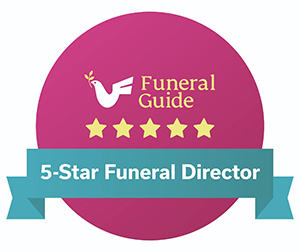What to do first
The death of a loved one can be a very distressing and troubling time, and it can be hard to know what to do next. This page aims to guide you through the necessary steps that will have to be made after someone close passes away and explain the administrative procedures involved.
If the death has occurred in a private residence, you must contact the person’s GP or the out-of-hours service. If the death occurs in a nursing home or hospice, generally, the staff will summon a Doctor or other qualified person on your behalf. In both instances, if practical, this should be the Doctor that looked after the person during their last illness.
(N.B. If the doctor or qualified person who certifies death is not the patient’s normal Doctor, the necessary documentation will need to be ordered from their normal Doctors surgery)
The following procedure will then apply:
- Ring your relative’s normal doctor – they will arrange for the MCCD (Medical Confirmatory Certificate of Death) to be sent electronically to the medical examiner’s office
- The medical examiner will call you to discuss and agree the cause of death and then countersign the MCCD. They will then forward it electronically to the registrar’s office
- Once you have had confirmation that this has taken place, contact the registrar’s office to arrange an appointment to register the death – use the online service or call the
number below to make an appointment. You must register in person - Once you have registered, the registrar will issue us with the certificate for burial or cremation directly – this allows the funeral to take place. They will issue you with
the death certificate. It is £11 for additional copies of the death certificate
Once the doctor or other qualified person has attended to certify the death, call us so we can attend and bring your loved one into our care.
Who is the Medical Examiner?
The medical examiner is a senior medical doctor who reviews all deaths to ensure the cause of death is accurately recorded and to protect the public.
Medical examiners are trained in the legal and clinical aspects of death certification –they will work with the doctor issuing the MCCD to confirm the cause of death and
agree on the wording of the death certificate.
Medical examiners will speak with the next of kin to discuss the cause of death and answer any questions – they may also ask for feedback on the care the provided
to the deceased.
Medical examiners can also refer deaths to the coroner where appropriate Once the medical examiner has countersigned the MCCD, they will electronically send
the completed document to the registrars. This will allow your family to register the death.







